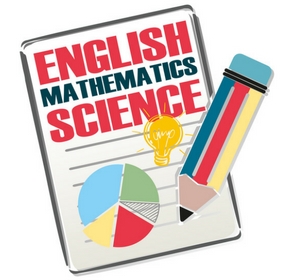 When I taught in the Early Years we never made a distinction between what subject we were learning, we were just busy learning.
When I taught in the Early Years we never made a distinction between what subject we were learning, we were just busy learning.
During a topic on transport we talked about trains, we built and then attempted to float boats, we flew planes and kites we had constructed, measured the length of our train track, wrote postcards home from our trip out on a train and sorted our vehicles into ones that flew, sailed and drove.
I never said to the children that we were now “doing English” or “this is a mathematics activity.” But this seems to change as the children move up the school. They start to have discrete mathematics, literacy and science lessons and the children can struggle to make the links between the subjects. Once when I moved a science session to the morning, a child in Year 3 piped up with, “but we do maths in the morning!”
In an ever increasingly crowded curriculum and busy school day, it makes sense to make as many links between the subjects as possible and science, English and mathematics are excellent places to start. The links are easy to make and unlike some links which can feel contrived, good science cannot happen without maths skills and the ability of the children to report their findings, however this might happen.
The Maintaining Curiosity report from Ofsted, published in 2013, stated that children “learnt best when they could see how the science they were studying linked to real world experiences, revealed more about the ‘big ideas’ in science, and connected with and supported their learning of other subjects, including English and mathematics. Learning in this fashion engages and enthuses pupils, develops their natural curiosity and motivates them to find out more.”
The report also stated that: “Teachers who couple good literacy teaching with interesting and imaginative science contexts helped pupils make good progress in both subjects.” Surely this is something we want to encourage?
So how do we support this?
Think of a science lesson you have recently taught. Whatever topic you have been studying there were probably aspects of mathematics involved. Were the children measuring liquids, time, length or temperature? Were they estimating and predicting - which would be the best? Were they looking for patterns in nature? Without the skills learnt in mathematics sessions, measurements are not going to be accurate. Without knowledge of presentation of data in graphs and tables results become unwieldy and difficult to interpret.
Also outdoors learning is a lovely place to combine subjects. Can they measure the height of trees using a clinometer? This involves not only measuring length but also angles. It will also require team working, as the children need a friend to measure the distance from their feet to their chosen tree. How old are the trees in our field? A tree puts on an average of 2.5cm a year in girth so if you measure the girth and divide by 2.5 then you should be able to age it. What would the tree have seen in its lifetime? Could the children write a narrative of the events it has witnessed?
Are the children writing recipes and instructions in their literacy lessons? Could they write a recipe for a woodland? Which ingredients would they need to add? Can they comment on the biodiversity of a woodland and think about external effects such as weather? Poetry writing comes alive when the children can comment on the things that are in front of them. Can they describe the grass they are sat on? Explain how clouds are formed while looking at some?
I used to start the morning with my Year 5/6 class reading news on the internet. Often the stories that inspired my class most were the science related ones and we would then research the ideas further, the children then asked if they could investigate the science involved. This became a challenge when looking at glow in dark jellyfish, but we were able to research the chemicals in glow sticks and how snapping the bubble inside caused them to glow. I would print out science news stories to use in guided reading sessions and the discussions that arose were fabulous to witness, often involving the rest of the class, who were not part of the reading group!
During the 2012 Olympics the children were inspired by the athletes and our class discussions revolved around “which Olympians were braver - summer or winter?” Our science topic at the time was forces so we focused on the forces involved in the different sports. The children were so engaged with the topic, as they were watching it daily on TV, and could see the real world links with the science we were completing in class. They were involved in some quite complex mathematics and their level of literacy when making suggestions was of such high quality.
The children were doing mathematics and English without even realising it!
If you are interested in learning more about this, I will be running a CPD activity that will develop the literacy and mathematics skills of your pupils through the context of science.
You may also be interested in...

